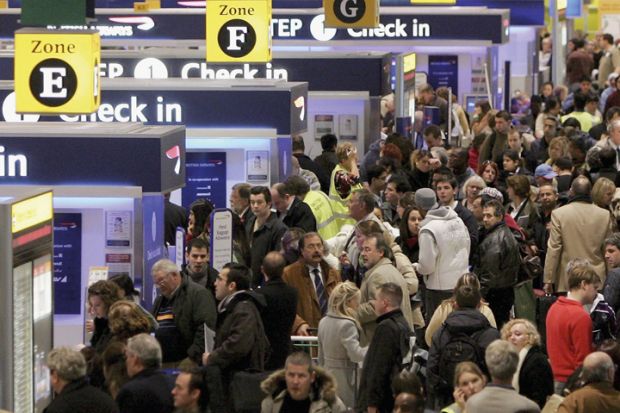England’s higher education regulator has faced renewed criticism as several private providers are still awaiting a decision on whether their students will be able to access student loans in the coming academic year.
The continuing delays in completing the Office for Students’ new register risk jeopardising institutions’ ability to recruit students for 2019-20 and thus their financial stability – regardless of what the regulator’s ultimate decision is on their registration. Providers must be on the register if their students are to access student loans – a prerequisite to enrolling for most students.
Concern about the fate of private providers has been heightened since England’s biggest for-profit college, GSM London, announced in July that it had gone into administration and would stop teaching at the end of this month.
The OfS received 465 applications for inclusion on the register, and has so far approved 386. All established universities are on the list, but decisions on several private providers are outstanding. These are thought to include St Patrick’s College, one of England’s most prominent for-profit providers.
The regulator has a range of grounds on which it could refuse an application, including concerns about financial sustainability, governance, and dropout rates.
In May, the OfS said that it had sent “minded to refuse” letters to 20 applicants, but it has so far confirmed only four actual refusals: for ABI College, Spurgeon’s College, the Bloomsbury Institute and Waltham Forest College.
The regulator says that it has written to some providers which are still not registered stating that they may be eligible for “limited designation”, which would allow continuing students to access student loans.
However, in the absence of a final registration decision, it is unclear how a provider could successfully recruit new students.
The register is available only as a spreadsheet on the OfS’ website, which is accompanied by a note stating that as the registration process is ongoing, “if a provider is not registered at the moment, no conclusions should be drawn about it based upon that fact”.
Nick Hillman, director of the Higher Education Policy Institute, told Times Higher Education that the registration process had taken too long and “it puts those not registered yet in a really sticky situation”.
“I worry that if the OfS has concerns about an institution and those concerns aren’t in the public domain, you might have another GSM-style situation. Eventually the flak will come back to the OfS,” he said.
“I don’t believe institutions with real problems should be on the register, but the whole thing is about the speed with which people are getting on the register – it’s incredibly slow. Investors are only prepared to wait so long.”
An OfS spokesman said that the regulator was “continuing to assess a small number of applications”.
“We will work through these as quickly as possible while recognising that the robust nature of the process is critical in order to protect the interests of students,” the spokesman said. “The providers affected are mostly those where additional evidence has been needed to support their assessment or who applied late.”
A GSM spokeswoman said that, since going into administration, the institution had been “working with around 15 different London-based higher education providers to facilitate transfer options for GSM students who wish to continue with their studies”. A large proportion of students have received offers to continue their studies from other providers, she said.

